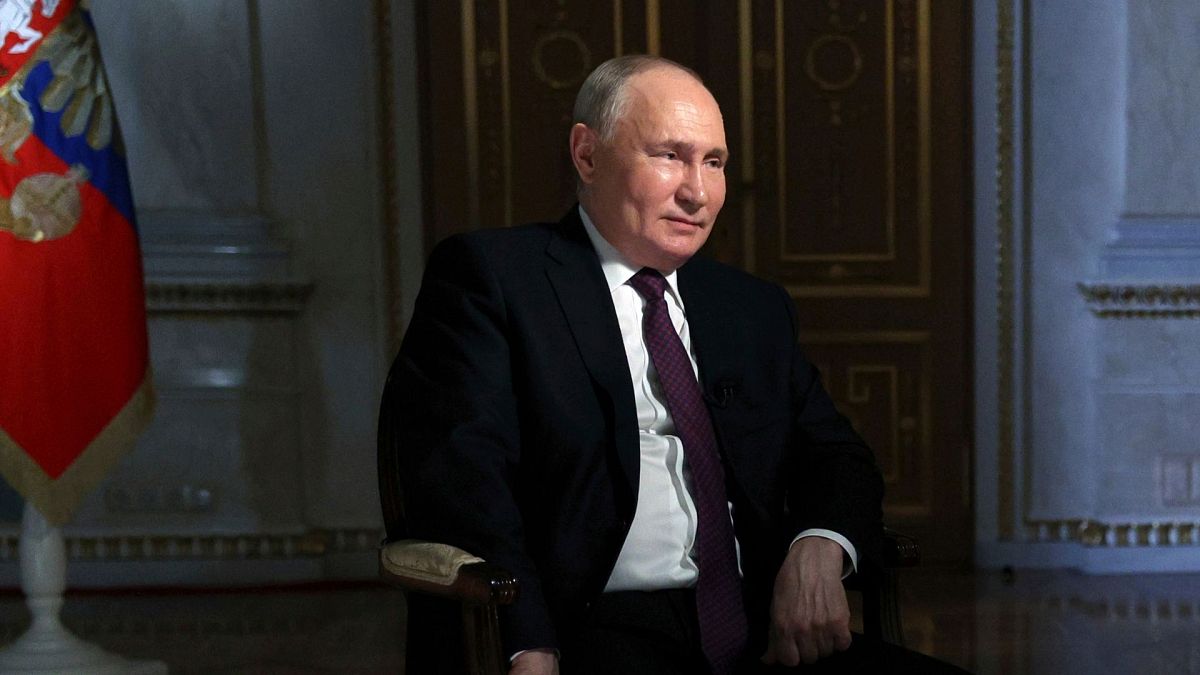Renewed packages of sanctions from the EU and US were supposed to weaken the Russian economy. Instead, it has adapted, and remains robust just as Vladimir Putin is about to get reelected for a fourth presidential term.
The resilience of the Russian economy is without a doubt a key selling point for President Putin, who’s been continuously leading Russia since 1999, either as President or Prime Minister.
But it was not supposed to be the case. After the invasion of Ukraine in 2022, many large companies left Russia, and both the EU and US coordinated and renewed several rounds of sanction packages, aimed at impacting the Russian economy and indirectly help Ukrainians in their war effort.
The 2022 escalation to a full-scale war was not the beginning of the conflict. That began with the invasion and annexation of Crimea in 2014.
Russia came prepared
Both the United States and the European Union had already imposed diplomatic, economic and financial sanctions on Russia back then. Although lighter than the current ones in place, Moscow took those warnings seriously, and knew that a full-scale invasion would mean additional, tougher measures.
Russia therefore prepared its economy to transition to a war economy. It kept on consolidating its financial and energy markets, turning to Eastern allies such as China, for instance with the ESPO pipeline.
If Russia is indeed isolated from the so-called West, it has many powerful allies elsewhere with whom it maintains good relations – such as most of its direct neighbours, who used to be part of the Soviet Union. Thanks to such partners, trading with Europe is still possible, albeit some adjustments.
The sanctions also took a while to be implemented, and Russia enjoyed a 12-month period before EU measures banning Russian oil took effect – allowing time for some extra preparation.
Oil keeps the Russian economy afloat
In spite of the sanctions, Russia remains one of world’s largest oil exporter, and benefits from Saudi Arabia’s last year’s decision to cut down on crude oil exports. Until then, the kingdom was the world’s first oil exporter.
“At the current price – just over $80 for Brent – the budget earns enough money from oil taxes to fund both the military industrial complex, social spending and other budget items with a deficit of less than 1% of GDP,” explained Christopher Weafer, CEO of Eurasia-based advisory firm Macro-Advisory.
“It is comfortably affordable from accumulated financial reserves. This oil revenue is critical as the ‘swing factor’.” Weafer emphasised that the devaluation of 20% of the ruble against the US dollar that occurred last year boosted export revenue for Russia – as oil exports are referenced to the US currency, regardless of the currency used in the transaction.
An overall satisfied population
The Russian state, whose system of governance has been solidly anchored in the country for decades and allows some stability, is injecting massive amounts of cash.
There’s the support for families of the hundreds of thousands of enlisted Russians, including those who never returned from Ukraine. The military mobilisation is one of the factors that has led to the current labour shortage, which means jobs are easy to find and to keep.
Wages have risen sharply over the past year, with most, including the lowest earners, receiving a 20% raise – thanks to money injected by the State. It counterbalances the effects of inflation that remain above target, reaching 7.7% in February.
This is “fuelling the recovery in the consumer sectors – and the overall sense of stability and confidence,” said Christopher Weafer, “as people have money to spend.”
The decried shortages caused by Western sanctions are not really a problem anymore, as Russian equivalents have replaced popular Western products on the shelves.
As for the war in Ukraine, if all of Russia does not necessarily fully buy into the government’s propaganda, the majority has at least accepted it. The announcement that there would be no new round of mobilisation has reassured many. For the rest, protests remain forbidden, and dissident voice are silenced – which is nothing new.
Is the current situation going to last?
In the near future, yes. However, the evolution of the oil market could heavily weight on Russia’s revenue, whether it comes from fewer export volumes or barrel prices decreasing.
“Then, the government would have to cut spending in some areas as it cannot borrow money and would be unwilling to eat into financial reserves too much or too fast,” said Weafer.
A larger issue will become evident before 2030 and that is Russia’s demographic decline. Like elsewhere, the country’s population is decreasing, and so is its workforce. Although identified, the issue has, for now, been swept under the rug, as more urgent matters have preoccupied the government, such as preparing and maintaining its economy while invading a neighbouring country.

